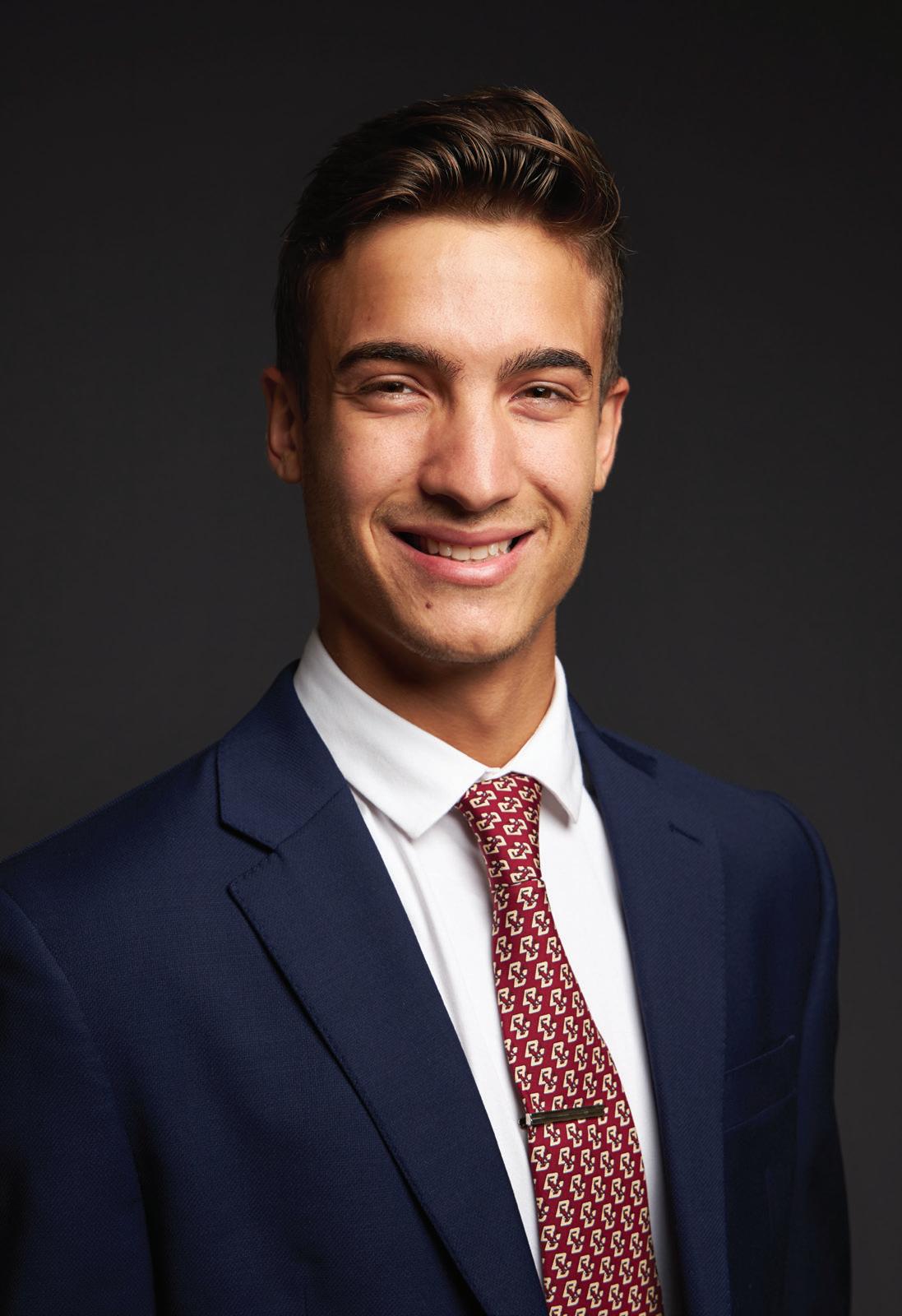

Master of Science in Finance
Globalization, new technologies, ever-evolving regulations, and novel financial instruments: the landscape of finance is constantly changing.

To succeed in this rapidly shifting environment, industry professionals need a thorough grounding in the enduring principles that underlie financial markets.
By focusing on fundamental economic principles, the Boston College Master of Science in Finance (MSF) program prepares students to navigate and manage unpredictable economic landscapes. BC MSF students gain valuable experience through case studies, internships, field study, and real-world consulting projects. Classes are small, fostering a strong sense of community and collegiality, and students have remarkable access to some of the finest teachers and researchers in the world.

Master of Science in Finance
program details
The BC MSF program helps students deepen their knowledge of finance, broaden their opportunities within the industry, and become recognized leaders in their fields.
It is designed to meet the diverse needs of finance professionals at different stages of their careers. It is also suited for recent undergraduates beginning their careers in finance, and for mathematicians, economists, engineers, computer scientists, and others who are considering a new career in the world of finance.
s CH ed U li N g optio N s
F U ll time
Students in the full-time program can complete the BC MSF in one full year of study. Students progress through the program as a cohort, fostering exceptional camaraderie and creating a supportive network—one that continues long after the program comes to an end.
F U ll time: q U a N titative F i N a NC e tra C k
The quantitative finance track is a STEMdesignated track that allows students to complete the MSF in one full year of study.

The quantitative finance track’s STEM designation allows international MSF graduates on an F-1 visa to potentially qualify for an additional 24 months of training in their field of study (called Optional Practical Training, or OPT) beyond the standard 12 months.
part time
The part-time option meets the needs of individuals who wish to continue their careers while pursuing advanced study. While course enrollment is flexible, part-time students typically complete the program in 20 months.
Part-time students pursue the same courses as their full-time counterparts, and also benefit from access to Boston College’s world-class faculty.
Madison Borrelli, MSF ’21
Ph.D. in Finance Candidate, University of Central Florida

“I feel fortunate that my experiences at BC allowed me to come out of my comfort zone in more ways than one. Not only was I academically challenged inside of the classroom, but I also strengthened my networking and communication skills while making lifelong connections.”
Sample Curricula and Course Sequences



“The

Peter Peirce, MSF ’20
Capital Strategy Manager, Citizens Bank
“I pursued the BC MSF because, after four years of undergraduate financial studies, I wanted to dive into more specialized financial topics such as applied derivatives and hedging techniques. I also wanted to expose myself to a new network and learn from a set of distinguished professors. I was able to receive all of this and more from BC’s MSF program. Boston College is unique because of its professors, who are all widely successful in their own right and essentially donate their time to students because they want to see us succeed. They make themselves entirely available outside of class, and I have created lasting relationships as they continue to guide me even as I begin my professional career. Additionally, the BC MSF program has been a collaborative academic experience, where classmates want the best for one another and will help when in need.
My advice to incoming students is to take advantage of every opportunity that is provided. It’s all there for you, but you need to grab it if you want to make the most of your time at BC.”
Careers and the Alumni Network
BC MSF graduates typically go on to jobs in corporate finance, asset management, and investment banking. Boston College’s Office of Career Development provides career guidance and support through workshops as well as on-campus company information sessions, industry lunches, and roundtables.
Graduates of the BC MSF program join a loyal and influential alumni network. Today, the Boston College alumni community encompasses more than 209,000 individuals all over the world, including more than 44,000 graduates of the Carroll School.
FU ll - time 2023 e N teri N g C lass pro F ile
aC ademi C pro F ile Average Undergraduate GPA 3.31
Class Compositio N
g eograp H i C r eprese N tatio N
Bangladesh, Canada, China, Denmark, Hong Kong SAR, India, Indonesia, South Korea, Sweden, Taiwan, United Kingdom
part- time 2023 e N teri N g C lass pro F ile
aC ademi C pro F ile Average Undergraduate GPA 3.43 Class Compositio N
s ample l ist o F Hiri N g e mplo Y ers*
Anderson
AQR Capital Management
Barclays
Berkshire Residential Investments
Blue Flag Capital
Boston Scientific
Cambridge Associates
China Construction Bank
China Merchants Bank
CICC
Citigroup
CTBC Bank
Deloite
Empire Consultants
EY
FactSet
Glenvale Solar Group 22
H&R Block
HarbourVest
HSBC
Invenomic Capital Management LP
JP Morgan Chase
KPMG
L.E.K. Consulting
Morgan Stanley
Northern Trust
Partners Capital
Piper Sandler
Putnam Investments
PwC
Rabid Ratings
Santander
SLC Management
State Street
Thermo Fisher UBS
Wells Fargo
* 2021–2023
» F or more i NF ormatio N , please visit b C .ed U /ms F - C areers

Faculty
Rui Albuquerque
Professor; Ph.D.,University of Rochester
Michele Andreolli
Visiting Assistant Professor; Ph.D., London Business School
Pierluigi Balduzzi
Professor; Ph.D., University of California, Los Angeles
Simcha Barkai
Assistant Professor; Ph.D., University of Chicago
Michael Barry Professor of the Practice; Ph.D., Boston College
Vincent Bogousslavsky
Associate Professor; Ph.D., Swiss Finance Institute, EPFL
Thomas J. Chemmanur
Professor; Ph.D., New York University
Nathan Dong
Assistant Professor of the Practice; Ph.D., Rutgers University
Ran Duchin
Professor and David J. Mastrocola Faculty Fellow; Ph.D., University of Southern California
Vyacheslav (Slava) Fos
Professor and Hillenbrand Family Faculty Fellow; Ph.D., Columbia University
Arup Ganguly
Assistant Professor of the Practice; Ph.D., University of Pittsburgh
Samuel Hartzmark
Professor and Hillenbrand Family Faculty Fellow; Ph.D., University of Southern California
Mathias Hasler
Assistant Professor of the Practice; Ph.D., Boston College
Drew Hession-Kunz
Senior Lecturer; MSF, Boston College
Edith Hotchkiss
Professor and Hillenbrand Family Faculty Fellow; Ph.D., New York University
Robert F. James
Senior Lecturer; MSF, Boston College
Cheng (Jason) Jiang
Assistant Professor of the Practice; Ph.D., University of California, Riverside
Bozidar Jovanovic
Assistant Professor of the Practice; Ph.D., Boston University
Darren Kisgen
Associate Professor; Ph.D., University of Washington
Manuel Lancastre
Associate Professor of the Practice; Ph.D., Nova SBE
Matteo Leombroni
Assistant Professor; Ph.D., Stanford University
Angela Ma
Assistant Professor; Ph.D., Harvard University
Andrey Malenko
Professor, Hillenbrand Family Faculty Fellow, and Ph.D. Program Coordinator; Ph.D., Stanford University
Nadya Malenko
Professor and Hillenbrand Family Faculty Fellow; Ph.D., Stanford University
Alan Marcus
Mario J. Gabelli Professor; Ph.D., Massachusetts Institute of Technology
Jeffrey Pontiff
Professor and James F. Cleary Chair in Finance; Ph.D., University of Rochester
Jonathan Reuter
Associate Professor; Ph.D., Massachusetts Institute of Technology
Paul Romer
Seidner University Professor; Ph.D., University of Chicago
Ronnie Sadka
Senior Associate Dean for Faculty, Chairperson, and the Haub Family Professor of Finance; Ph.D., Northwestern University
Paul Schmelzing
Assistant Professor; Ph.D., Harvard University
Aimee Hoffmann Smith
Assistant Professor of the Practice; Ph.D., Florida State University
David Solomon
Professor and Giuriceo Family Faculty Fellow; Ph.D., University of Chicago
Philip E. Strahan
Professor and John L. Collins, S.J. Chair in Finance; Ph.D., University of Chicago
Hassan Tehranian
Professor and Griffith Family Millennium Chair; Ph.D., University of Alabama
Tuomas Tomunen
Assistant Professor; Ph.D., Columbia University
Milena Wittwer
Assistant Professor; Ph.D., Stanford University
Nancy Xu
Assistant Professor; Ph.D., Columbia University
Hanyi (Livia) Yi
Assistant Professor; Ph.D., Rice University

Edith Hotchkiss
Professor and Hillenbrand Family Faculty Fellow
“I teach advanced topics in corporate finance and I draw heavily on my research expertise, especially in corporate restructuring and debt markets. It’s a rapidly changing area, so both the course material and the research are constantly being updated.
You don’t teach this material just by lecturing. You’re guiding students through a case study, helping them discover on their own why a situation played out the way it did. It’s not about learning a static model and applying it to the rest of your life. It’s about learning how to take a complex problem and break it down, ask the questions, move it forward. It’s very discussion-based.
Our faculty has close contact with students at all levels. And I think you see that in the longevity of the relationships with students after they leave Boston College. That’s a big part of why I like teaching here.”
Edith Hotchkiss publishes widely on topics such as valuation and restructuring mechanisms for financially distressed firms. Among other current projects, she is studying the impact of leveraging on company innovation. She has also served as a board director of the Turnaround Management Association and as an independent economist for the Financial Industry Regulatory Authority.
Admission
The BC MSF program seeks students with outstanding potential for leadership and academic excellence. While notable for the diversity of their individual achievements, our students all present a consistent record of taking initiative, leading change, and demonstrating a desire to make an impact in the world.
H ow to appl Y
Each candidate must complete an application for admission, which includes transcripts of all academic work, essays, and a letter of recommendation. Prior work or leadership experience as well as evidence of management potential are significant criteria in the admissions process.
All applicants are required to take the Graduate Management Admission Test (GMAT) or the Graduate Record Examination (GRE). Applicants whose native language is not English must take the Test of English as a Foreign Language (TOEFL), the Pearson Test of English (PTE), or the International English Language Testing System (IELTS). All candidates must be graduates of accredited colleges or universities.

Boston College Carroll School of Management publications contain current information regarding the University calendar, admissions, degree requirements, fees, regulations, and course offerings. They are not intended to be and should not be relied upon as a statement of the University’s contractual undertakings.
aCCreditatioN iNFormatioN maY be aCCessed at: bc.edu/csom-accreditation
NoNdisCrimiNatioN NotiCe maY be aCCessed at: bc.edu/nondiscrimination
CampUs saFetY aNd seCUritY program maY be aCCessed at: bc.edu/campus-safety Produced by the Office of University Communications August

